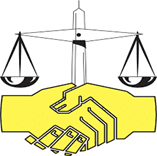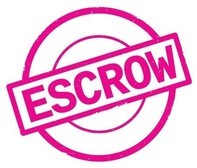Monthly Bulletin – August 2025
In this issue:
- Licensee Activity
- DFPI News
- Debt Collection News
- Broker-Dealer and Investment Adviser News
- Legal News
- Mortgage News
- Escrow News
- Credit Union News
- Upcoming Consumer Education Event
About the Monthly Bulletin
The Bulletin is a regulatory and informational newsletter, issued once a month by the Commissioner of DFPI, in accordance with state law (Financial Code Section 376). It serves as a communication tool to provide licensees and the public with timely updates on regulatory activity across California’s financial services landscape.
The Bulletin includes banking/licensee activity, regulatory updates, industry and licensee updates, enforcement actions, rulemaking and policy announcements, consumer alerts and resources, and other relevant information.

LICENSEE ACTIVITY
Bank Activity
New Bank
Quantum Bank, proposed location to be determined in Downtown Los Angeles
Approved: 7/08/25
Merger
Cornerstone Community Bank, Red Bluff, to merge with and into Plumas Bank, Quincy
Effected: 07/01/25
HomeStreet Bank, Seattle, Washington, to merge with and into Mechanics Bank, Walnut Creek
Approved: 7/21/25
Acquisition of Control
Robert Setrakian, to acquire control of Golden State Bank
Approved: 7/08/25
(1)2011 TCRT, (2) Ford Ultimate Management II, LLC, (3) Ford Management II, L.P., (4) GJF Financial Management II, LLC, (5) Ford Family Investment, LP, (6) Ford Financial Fund II, L.P., (7) EB Acquisition Company LLC, (8) Ford Management III, L.P., (9) Ford Financial Fund III, L.P., and (10) EB Acquisition Company II LLC, all in University Park, Texas, to acquire of control of HomeStreet, Inc. (In connection with the merger of HomeStreet Bank with and into Mechanics Bank)
Filed: 06/9/25
Approved: 07/21/25
Foreign (Other Nation) Bank Activity
New Office
Chang Hwa Commercial Bank, Ltd., 515 South Flower Street, Los Angeles, (to convert from a limited branch to a wholesale branch)
Effected: 07/15/25
Money Transmitter Activity
Voluntary Surrender
PointChain Technology USA CA Inc.
Effected: 02/18/25

DFPI News
New! Report a Cybersecurity Incident Form
As cybersecurity incidents grow in sophistication, complexity and frequency, early detection and prompt notification enable a swift response and containment measures.
To assist licensees in promptly reporting to the DFPI the detection of a cybersecurity incident, the DFPI has created a short fillable Cybersecurity Incident Report Form, available here.
This tool will facilitate reporting a known or suspected cybersecurity incident quickly and easily. The notification form provides an early alert to the DFPI and does not require the licensee to provide a detailed incident assessment. DFPI encourages licensees who experience or have reason to believe they have experienced a cybersecurity incident to report the event as soon as possible.
The licensee and DFPI can work together to contain the incident and protect assets, data and stakeholders. This early notification tool also aims to strengthen defenses against evolving cyber risks.

PRO 05-17 – Notice of Proposed Rulemaking – Corporate Securities Law of 1968
The Commissioner of the Department of Financial Protection and Innovation proposes to amend California Code of Regulations, title 10, sections 260.210, 260.216.7, 260.218.4, 260.230, 260.230.1, 260.231, 260.238, and 260.241 as set forth in the documents below. The proposed action would revise certain forms and notices; add to the list of activities that do not promote “fair, equitable or ethical principles”; clarify books and records requirements for broker-dealers; and revise procedures for filing documents directly with the Commissioner. The Commissioner will consider all comments, objections, and recommendations regarding the proposed action.
- Notice of Proposed Action – Notice of Proposed Action (PDF)
- Text of Proposed Regulations – Text of Proposed Regulations (PDF)
- Initial Statement of Reasons – Initial Statement of Reasons (PDF)
Time for Comments
The Commissioner invites interested parties to submit comments by September 1, 2025.
Submit comments by any of the following methods:
- By email to: [email protected]. Please include “PRO 05-17” in the subject line. Comments submitted as attachments in Microsoft Word format (.docx) are preferred.
By postal mail to: Department of Financial Protection and Innovation / Attn: Diana Pha, Regulations Coordinator, Legal Division, 651 Bannon Street, Ste. 300, Sacramento, CA 95811

New Regional Deputy Commissioner of Northern California, Banking
Matthew Fujikawa has been promoted to Regional Deputy Commissioner of Northern California, Banking, effective July 1. In this new role, he will oversee a team of Financial Institutions Managers, Portfolio Managers, and Examinations Managers who supervise, manage, and examine a portfolio of commercial banks, foreign banks, and trust companies.

New Regional Deputy Commissioner of Orange County/San Diego, Banking
Emil Mikhail has been promoted to Regional Deputy Commissioner of Orange County/San Diego, effective August 11. In his new role he will have administrative and supervisory responsibility for a portfolio of licensees, which include commercial and industrial banks and their holding companies, trust companies and departments, and offices of foreign banks, located in the Orange County and San Diego region.

Debt Collection News
In Preparation for Upcoming 2025-2026 Debt Collection Annual Assessments
The Debt Collection Licensing Program (Program) will be conducting its first Assessment, for the fiscal year 2025-2026. On or before September 30, 2025, the Program will invoice each licensee its annual fee, due by January 1, 2026.
In accordance with Financial Code section 100020, the Department of Financial Protection and Innovation (DFPI) will assess a pro rata share of all costs and expenses incurred in the administration of the Debt Collection Licensing Act for the ensuing year to each licensee. The pro rata share is calculated based on the Net Proceeds indicated in each licensee’s 2024 Annual Report that was due in March 2025. For a licensee approved between January 1 and June 30, 2025, requisite Net Proceeds information was collected through the DFPI-DC 01 Supplemental Request for Information form in connection with their application.
DFPI’s review of the 2024 Annual Reports indicates that many licensees are reporting Net Proceeds that the Department believes contain calculation errors (including some reporting no Net Proceeds). Since the inaccurate reporting of Net Proceeds has a significant impact on all licensees when calculating the annual assessment, we strongly urge all licensees to review the Common Errors noted below and make adjustments to the Net Proceeds information included in their 2024 Annual Report, as needed. Instructions for resubmitting the annual report are at the bottom of this page. This should be completed by August 29, 2025.
We appreciate your cooperation with the Debt Collection Licensing Program to ensure effective administration of the Debt Collection Licensing Act and regulation of the debt collection industry in California. Inaccurate or false reporting of Net Proceeds information may necessitate regulatory or special examinations and enforcement actions. Furthermore, debt collectors must maintain their Debt Collection Licensing Act license in order to continue conducting business in this state.
Common Errors found in Calculations of Net Proceeds amounts Listed in 2024 Annual Reports
We have identified the following common errors:
- The licensee used net income rather than gross income as a baseline to calculate Net Proceeds. Nothing should be deducted from gross income, other than what is expressly allowed in the regulations for debt buyers. Only those licensees that have had no gross income from any type of debt collection in the preceding year should be reporting “zero” Net Proceeds.
- The licensee did not recognize all types of debt collection activities. “Debt Collection” means any act or practice in connection with the collection of consumer debt. That includes debt buyers (active or passive), call centers, composing letters and other activities, whether the entity is directly collecting payments from consumers or not. Any of these functions that generated income must be included in Net Proceeds.
- The licensee that is part of a larger organization where all funds and accounting functions are aggregated through an affiliate or a holding company did not report any income of those affiliates or holding companies. Any income from the debt collection activities performed by the licensee must be reported. If financial information is consolidated, then the licensee must obtain detailed subledgers from the affiliate or holding company to determine what the licensee must report.
- The licensee did not use the appropriate methodology to calculate Net Proceeds. A single licensee may have to perform multiple calculations to obtain the final Net Proceeds amount. There are three ways to calculate Net Proceeds depending on the licensee’s business model, as explained below.
Permissible Ways to Calculate Net Proceeds
Title 10, California Code of Regulations, section 1850, subdivision (p), sets forth the methodology for calculating Net Proceeds, depending on a licensee’s business model.
- Debt BuyerTitle 10, California Code of Regulations, section 1850, subdivision (p)(1), provides that for the California debt collection activity of a debt buyer as defined in Civil Code section 1788.50, Net Proceeds is equal to the amount the debt buyer collects on a debt minus the prorated amount it paid for that debt, before deducting costs and expenses.
This first methodology for calculating Net Proceeds is applicable to a person or entity that is regularly engaged in the business of purchasing charged-off consumer debt for collection purposes, whether it collects the debt itself, hires a third party for collection, or hires an attorney for collection litigation.
- Owner of DebtTitle 10, California Code of Regulations, section 1850, subdivision (p)(2), provides that for the California debt collection activity of an owner of debt who is not a debt buyer, the Net Proceeds is equal to the amount the owner receives in fees and other charges from debtors that it would not have received had the debt been paid on time, before deducting costs and expenses.
This second methodology for calculating Net Proceeds is applicable to debt owners that are not engaged in the business of purchasing charged-off consumer debt. Net Proceeds includes all additional fees and monies collected once a consumer’s payment is late.
- All Other Debt CollectorsTitle 10, California Code of Regulations, section 1850, subdivision (p)(3), provides that for all other California debt collection activity, Net Proceeds is equal to the amount a debt collector receives from its clients, regardless of fee structure, before deducting costs and expenses.
This third methodology for calculating Net Proceeds applies to all collectors that do not own the debt, including entities that are collecting for an affiliate. Net Proceeds must include all income related to California consumers and no expense deductions are allowed.
How to resubmit Your 2024 Annual Report, with revised Net Proceeds amounts
If you need to amend the Net Proceeds reported in your 2024 Annual Report, please refer to the instructions below to resubmit the annual report. Corrected reports will be considered submitted as of the original filing date and no action will be taken based on the originally filed reports. Inaccurate or false reporting of Net Proceeds information that persists beyond the August 29, 2025 resubmittal deadline may necessitate regulatory or special examinations and enforcement actions.
- Go to https://docqnet.dfpi.ca.gov/login and sign in using the Username and Password you created when you registered for the account.
- Once logged in, from the welcome page, click on your name (top right) to open the drop-down menu and click the Annual, Liability & Industry Survey Reporting link.
- Under “Your Reports” on the Annual, Liability & Industry Survey Reporting page, click on Debt Collection Annual Reports.
- To revise your report, click on “Re-Open.”
If you need to amend Net Proceeds through the DFPI-DC 01 Supplemental Request for Information form, send an amended form to [email protected].

Broker-Dealer and Investment Adviser News
Broker-Dealer Agent and Investment Adviser Representative Fee Announcement
On July 1, 2025, the California Legislature passed Assembly Bill No. 137 authorizing the Department of Financial Protection and Innovation to charge $50 for initial and renewal registration fees for Broker-Dealer Agents (“Agent”) and Investment Adviser Representatives (“IAR”). The fee increase is effective immediately. The initial registration fee for each Agent or IAR has been increased from $25 to $50, and the renewal fee for each Agent or IAR has been increased from $35 to $50. This new fee will be reflected on FINRA E-Bill accordingly.
If you have any questions or inquiries, please contact the Division at [email protected].

Legal News
New Requirement for Financial Institutions with Attorney Client Trust Accounts
On September 12, 2024, Governor Gavin Newsom signed into law AB 3279, which imposes certain requirements on financial institutions starting in January 2026 relating to client trust accounts, including both Interest on Lawyers’ Trust Accounts (“IOLTA”) and non-IOLTA trust accounts, maintained by a licensee of the State Bar of California. These requirements are found in Business & Professions Code section 6091.3.
The Department of Financial Protection and Innovation is providing this notice as a courtesy to its licensees. Financial institutions should seek guidance from their counsel. Financial institutions can also contact the State Bar to receive updates and ask questions by sending an email to [email protected]. The State Bar also expects to have updated information available on its website in November.

Mortgage News
California Residential Mortgage Lending Act (CRMLA) Annual Assessment Increase
On or before the 30th day of September of each year, the Department will assess each licensee the cost and expenses reasonably incurred in the administration of CRMLA. The amount of increased assessment is $3,000 with no lending activity and $15,000 for each licensee’s lending, broker lending, and servicing activity as reported on the annual report for the previous calendar year. The increase is following the Governor’s signing of AB 137 on June 30, 2025. Annual assessment payments are due within 20 days of the invoice date. Licensees are reminded to budget accordingly for the annual assessment.
For more information, visit our Requirements After a California Residential Mortgage Lender and/or Servicer License Has Been Issued page.

Escrow News
Some Escrow Annual Reports Due August 13
Escrow agents are required to submit to the Commissioner an annual report prepared by an independent certified public accountant (Financial Code section 17406) within 105 days after the close of the escrow agent’s fiscal year. The annual report includes audited financial statements and required supplemental information.
If your fiscal year ended on April 30, 2025, your annual report is due August 13, 2025. Please have your CPA email your report to [email protected] by the deadline using a secured, encrypted delivery system. The use of a secured dropbox is also acceptable. If your CPA is unable to submit the annual report electronically, it can be mailed to Queen Padilla, Senior Financial Institutions Examiner, Escrow Law, Department of Financial Protection and Innovation, 320 West Fourth Street, Suite 750, Los Angeles, CA 90013.
Penalties for failure to file the annual report by the due date or to include required information are $100 per day for the first five days a report is late and $500 per day thereafter (Financial Code section 17408). Failure to file a report or to include any required information may also result in the suspension or revocation of an escrow agent’s license or prompt an immediate examination (Financial Code section 17602.5). For questions about the annual reports, email [email protected].

Credit Union News
Applications for the Credit Union Advisory Committee
DFPI is soliciting applications to fill positions on its Credit Union Advisory Committee for the 2025-2027 term. Applications are due by September 19, 2025.
The Committee advises the Commissioner of the Department of Financial Protection and Innovation and Deputy Commissioner for the Office of Credit Unions on matters relating to credit unions or the credit union business.
DFPI strives to have broad representation on the committee and considers the following priorities when making recommendations for appointment to this position:
- Geographic representation
- Small, Mid-Size, and Large credit unions
- Fields of membership
- Leadership in industry related state and national associations
- Diverse backgrounds and experience
If you are interested in serving on the Advisory Committee for the 2025-2027 term, please submit an application expressing your interest and summarizing your qualifications for service. Please include:
- Background
- Areas of expertise
- Reasons for serving on the committee
- Credit union’s size, region, and field of membership
- Challenges you face in your own credit union
- Whether your credit union has private or federal insurance
- Experience with relevant issues in the current public policy environment, including serving underbanked and vulnerable Californians, exploring opportunities in financial innovation, and engaging in discussions around the future of the credit union movement.
Please submit your email application to Purvi Patel, Deputy Commissioner, Office of Credit Unions at [email protected] no later than September 19, 2025.

Upcoming Consumer Education Event
Every month we educate consumers through community events and a monthly webinar.
Scam Chat Wednesday: Preventing Identity Theft Webinar
August 13, 12–1 p.m.
Scammers don’t take a break—and neither do we. AARP California and the DFPI invite you to join us for Scam Chat Wednesdays 2025, our annual August series where speakers unravel today’s most dangerous cons, one week at a time.
This week’s presentation will cover identity theft and how to spot the warning signs before your information is stolen.
Sessions feature live Q&A with fraud fighters and industry authorities from state and federal agencies, so bring your questions and concerns. Whether you’re protecting yourself or a loved one, this is your weekly power-up against deception.
Last updated: